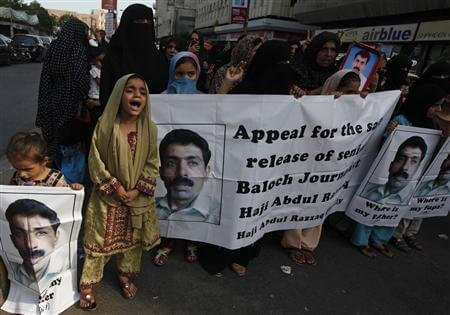The elusive leader of a major rebel group fighting for independence in Pakistan’s Balochistan province said he would welcome cash and other help from India, words likely to alarm Islamabad which accuses New Delhi of stirring trouble there.
In his first video interview in five years, Allah Nazar Baloch, head of the ethnic Baloch group Balochistan Liberation Front (BLF), also vowed further attacks on a Chinese economic corridor, parts of which run through the resource-rich province.
The planned $46 billion trade route is expected to link western China with Pakistan’s Arabian Sea via a network of roads, railways and energy pipelines.
“We not only wish India should support the Baloch national struggle diplomatically and financially, but the whole world,” said Baloch, a doctor-turned-guerrilla believed to be about 50, in filmed responses to questions sent to him.
Baloch’s appeal for Indian help may deepen Pakistani suspicions that India has a hand in a decades-old insurgency in the vast southwestern province.
Historically fraught relations between the nuclear-armed neighbors deteriorated this month after 18 Indian soldiers in Kashmir were killed in an attack on an army base that New Delhi blames on Pakistan. Pakistan denies the accusation.
On Thursday, India said it had carried out strikes on suspected militants in its first direct military response to the raid.

In the buildup to the army base attack, Pakistan had voiced outrage over the crackdown on protests in India’s part of the Muslim-majority region, and Indian Prime Minister Narendra Modi hit back by accusing Pakistan of atrocities in Balochistan.
Baloch, leader of one of three main armed groups fighting for Balochistan’s independence, said that while he wanted support from India, the BLF had not received funding from Modi’s government, or India’s spy agency, the Research and Analysis Wing (RAW).
“We welcome the statement that Narendra Modi gave to morally support the Baloch nation,” added Baloch, clad in a traditional beige shalwar kurta outfit, with an automatic rifle across his lap and ammunition hanging from his belt.

















